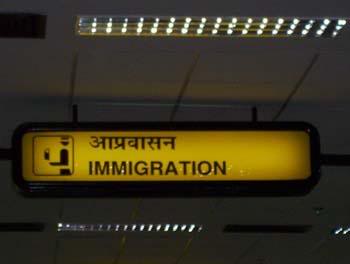 New Zealand’s xenophobia, rather its politicians’ attempt to capitalize on xenophobia, has raised its ugly head again.
New Zealand’s xenophobia, rather its politicians’ attempt to capitalize on xenophobia, has raised its ugly head again.
This time it is Labour leader David Cunliffe, who has blamed migrants for housing crisis and has suggested putting brakes on immigration following Treasury’s prediction that net migration may cross the 40,000 mark very soon.
If Cunliffe has his way, New Zealand could curb the projected migration levels of 40,000 to just in the “zone of between 5,000 and 15,000”.
Cunliffe wants “enough new migrants to fill our skill gaps but not so many that it overwhelms our housing market or the ability of our schools and our hospitals to cope”.
How convenient! Has he done research to learn about the number of migrants serving in New Zealand’s healthcare sector?
In the case of hospitals, he seems to be forgetting that without migrants as staff at all levels, they would gradually grind to a halt, says the NZ Herald columnist Brian Rudman.
It reminded me of the early years of 2000s, when net migration was as high, and there was a wide-spread feeling of resentment against migrants – Asians specifically, as they look and sound different.
However, those were the times when New Zealand economy was growing at a record rate of 3% to 3.5%. Individual incomes were high; people had steady jobs and spending rate was comparable to most developed countries.
We don’t have the same scenario now. The leading economies of the world haven’t recovered from the historic recession, with no clear signs of better days ahead.
This is a time to make the most use of available resources and bat on, so that New Zealand economy is able to create a distinct competitive advantage on global platform, despite its geographic remoteness and small market size.
This is possible by attracting the best talent from around the world in face of growing competition for talent from bigger economies like the US, the UK, Canada and of course, our fortunate cousin Australia.
Instead, policymakers like Cunliffe are busy finding ways to protect the sentiments of homegrown Kiwis, and ride on the anti-migrant wave.With elections around the corner, and poor voter perception, Cunliffe seems to be trying everything he could to revive his campaign.
However, let’s not politicize the issue.
If Asian population is expected to hit 800,000 in another decade, then it should be seen as an opportunity, not threat.
Let’s not drive skill-based migration, which benefits a few cities like Auckland, at the cost of other regions.
Auckland is a major winner from the government’s skilled-based immigration policies, says analyst Rodney Dickens of Strategic Risk Analysis Ltd.
“Wellington and Canterbury benefit to a moderate extent, while Canterbury benefits form the rebuilding-related skill-based policy. All other regions are double losers as a result of the skilled-based immigration policies,” says Dickens in his latest report (PDF).
“Skill-based immigration policies would appear to be great at ensuring the largest group of immigrants, excluding Kiwis returning form OE, offer skills that fit with the evolving economy.
“However, the evolving economy and the skilled-based immigration policies both favour large urban centres over other centres. This is having a significant impact on regional economic growth, retail spending, residential building and house prices.
“Restricting where immigrants can live would be self-defeating. In time many skilled immigrants would end up filtering to the major urban centres even if they were originally restricted to living in provincial towns and cities.”
Dickens recommends an immigration policy that puts less emphasis on skills and gives more importance to hard work.
“If the criteria were relaxed to include hard-working people with lower formal
qualifications, it would create a more balanced playing field from a regional perspective,” argues Dickens.
“If this were done it would allow regions with smaller urban centres to better compete in part because they offer much more affordable housing costs compared to income levels than the large urban centres.”
“It would allow regions with cheaper housing costs to compete for immigrants on a much more equal footing with regions dominating new economy job creation.”

Leave a Reply